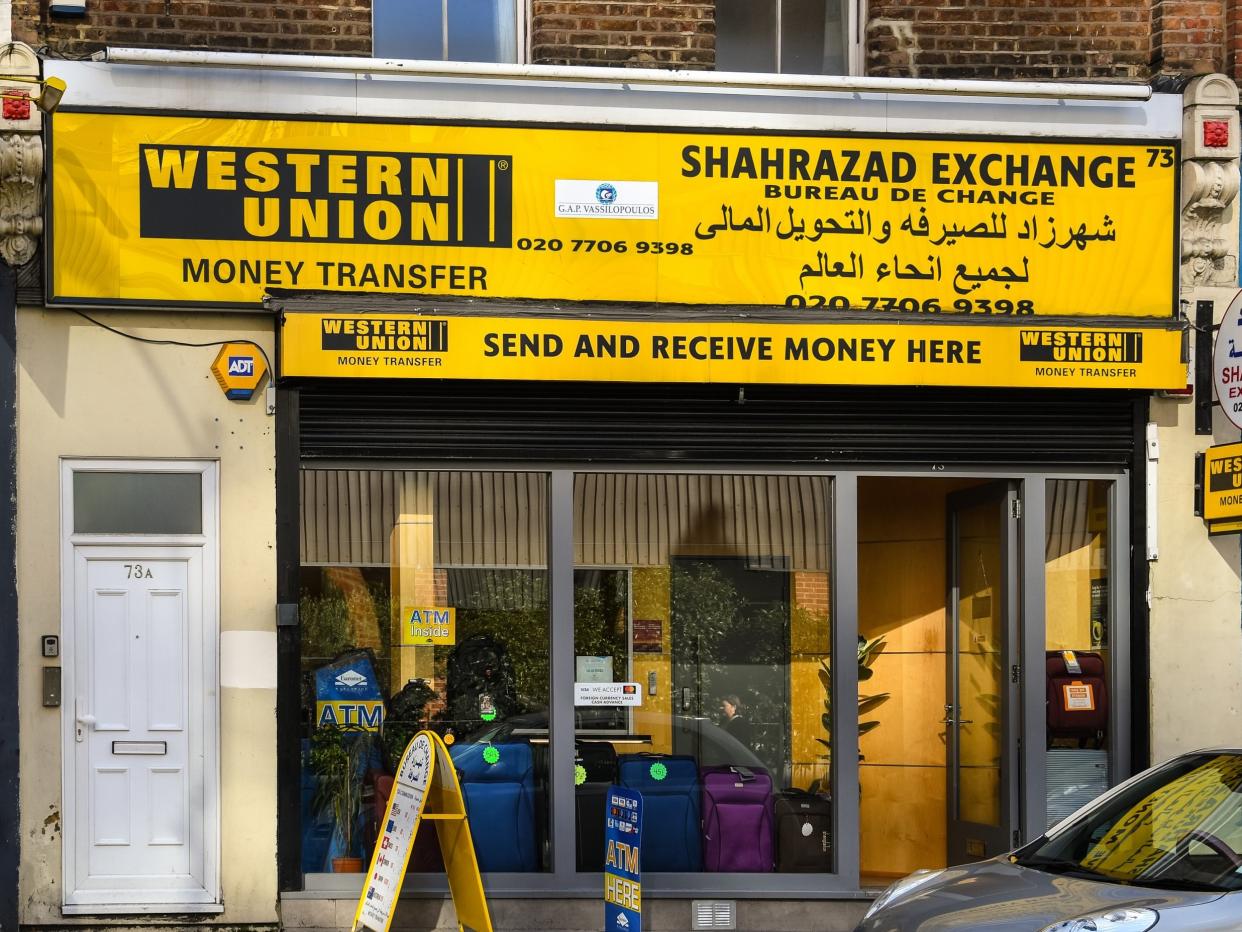Migrants sending money home are being charged far too much – it's time we stopped taking their hard-earned cash

Imagine, for a moment, a world where the bank skims off 7 per cent on every transaction you make. So every time you use your Switch card, make a direct debt or, for the old fashioned, write a cheque for, say, £1,000, your bank charges you £70 just for the privilege of doing so. Every time.
That, in fact, is the position the world’s migrant workers find themselves in, when they want to wire cash home to support families and, in particular, their children’s education. According to a Unesco report, too much of this “hard-earned money” is being taken in transfer charges by banks and other financial institutions. Unesco argues that poorer people wiring money should only have to pay 3 per cent in charges – but the global average is 7 per cent. The Association of UK Payment Institutions adds that fees would be lower if regulators allowed more companies to compete in this market. With some due diligence about money laundering and terrorism, that should be possible to do.
Does it matter? Although remittances abroad are “bad” for, say the UK balance of trade, the sums involved are relatively modest for richer countries: £8bn flows out of the UK, for example, out of a total national income of about £2,000bn. It compares with the overseas aid budget of £13bn – even together not much more than £1 for every £100 the UK economy generates.
But while it is small beer for advanced nations, it is a vital source of foreign exchange for families in poorer countries. Back home, in Nigeria, the Philippines, Pakistan, Zimbabwe, even Poland say, jobs are sometimes hard to come by, and usually far less well paid than they are in the west. Hence the immigration waves that have been such a feature of international affairs in the 2010s (as well as a result of wars and natural disasters). As is often the way with migration, the wealthier nations where they settle, temporarily or permanently, often fail to recognise the contribution they make, in providing willing skilled, semi-skilled and unskilled labour, all desperately needed in nations running at high levels of employment. It seems wrong, very wrong, that injury should then be added to insult when the wages they earn should then, in effect, be taxed by the financial system.
Remittances are, in effect, a form of educational foreign aid – efficiently spent by those who have the biggest stake in it – individual parents. In 18 countries across Africa and Asia, say Unesco, remittances increased education spending by 35 per cent, and in Latin America by 50 per cent plus. In India, rural families receiving remittances spent 17 per cent more on education than neighbours who did not have such cash being sent back by relations.
In some countries – Tonga, Kyrgyzstan, Tajikistan, Haiti, Nepal – typically remote with scant opportunities, or with richer neighbours on their doorsteps, remittances from the diaspora can approach a third of national income. In some failed states such as Somalia it must be even higher, though there seems to be little reliable data. In any case it is nothing new. For many years (and I can speak from experience) Irish families used to receive dollars from relatives and descendants who had made it to America and built prosperous lives for themselves. A $10 bill with its serene vignette of Alexander Hamilton turning up inside a Christmas card from Brooklyn was a welcome boost to hard-pressed families in County Mayo.
On a broader view, the obvious answer is for developing and emerging markets to do more to free up their economies, encourage inward investment, liberalise markets and follow the path to prosperity seen in free-market economies everywhere. Not a fashionable view, but these underlying tensions – waves of young people unable to make a living – were behind the Arab Spring a few years ago, and are, if you dig deep enough, behind political tensions from South Africa to Turkey.
Maybe then the more enterprising, harder working and skilled of their peoples would not find themselves having to travel far away and be ripped off when they try to do right by their families.

 Yahoo News
Yahoo News 
